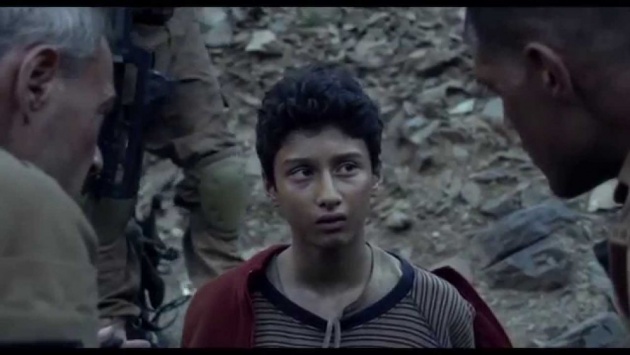
The French contribution to the ‘war on terror’ is examined in director Clément Cogitoire’s film Ni le ciel ni la terre (The Wakhan Front). Or rather – in a literal sense - it doesn’t. This is an odd mix of drama, in the mode of Kajaki, and horror film, lacking the pleasures of both.
A French garrison is tasked with protecting a village from the Taliban. But there’s a problem. The village elder’s son is approaching the garrison with a sheep, refusing to respond to cries to turn back. Shots are fired and the sheep bolts.
The next day, at a meeting between troops and the villagers, the man asks for compensation - $100 – for the loss of his sheep. The French captain (Jérémie Renier) tells him it is not possible. They shake hands and leave.
But the troop’s dog, used to sniff out explosives, disappeared. Then two of the captain’s men leave their post under mysterious circumstances. A third soldier disappears, then a fourth. The troops search the village. They receive an intermediary who rides his motorcycle up to the garrison in the belief he should be recognised. He sets off to negotiate for the release of the men. Then he disappears. Then the Taliban turn up, asking, ‘where are our men?’
The film’s credibility collapses at the explanation. It involves visions, a stake driven into the ground and a sheep. It takes the film into genre territory. There is an interlude in which a Chaplain turns up – one of the soldiers wants his blessing (the last rites before he dies, as it were). The Chaplain explains he is there to observe when men are under pressure. He is sent packing.
Genre films develop suspense – who will disappear next, and when? Cogotoire’s film is much more dispassionate. He is more interested in the values sacrificed when men deal with something they cannot understand, and the question of explaining the men’s disappearance to their families.
The ending is prefigured in an anecdote about men in an armoured vehicle being killed. When their body parts are collected, they barely make a whole man. Parts of the bodies are sent back topped up, as it were, with soil. The anecdote has credibility. The film doesn’t. At the end, a character makes an enormous sacrifice for something he never fully understands. This is, perhaps, how Cogitoire sees France’s involvement in Afghanistan. It is a somewhat facile conclusion. Men might not always fight for the right reason. Nevertheless, there is always a reason.
Reviewed at Salle Miramar, Cannes, Sunday 17 May 2015, 08:30am screening



